

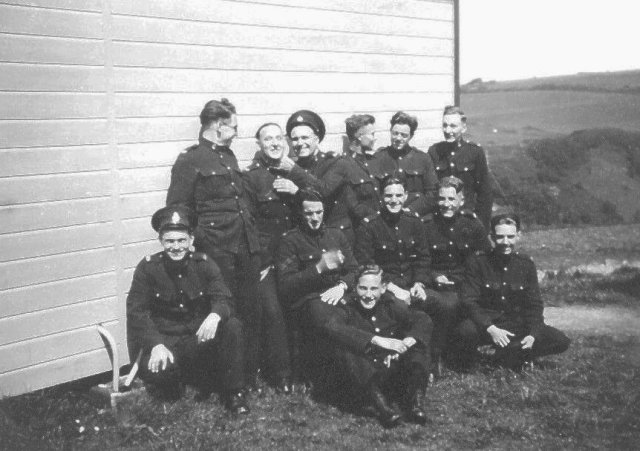
At the outbreak of war in 1939, George Lloyd was 26. On the advice of Rutland Boughton he joined the Royal Marines as a bandsman, and after training at Deal he joined HMS Trinidad, a new cruiser being fitted out at Plymouth. There were 12 men in the ship's band, of whom only 3 survived the war A total of 225 RMB musicians and buglers were killed in action in WWII, a quarter of their strength at the time and the highest percentage of any branch of any service, after Bomber Command.
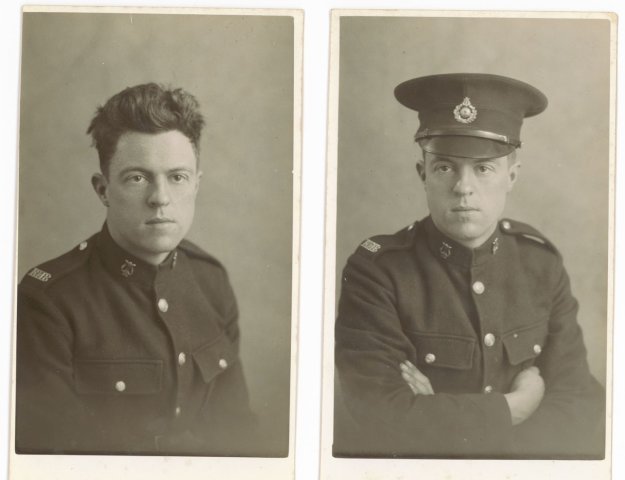
Two instruments were required for Royal Marine Bandsmen, so George learned to play the cornet as his second instrument. Because of his musical experience he became deputy Bandmaster, and wrote the ship's march, (HMS Trinidad March) chosen by the crew in a play-off with a march by Ralph Vaughan-Williams.
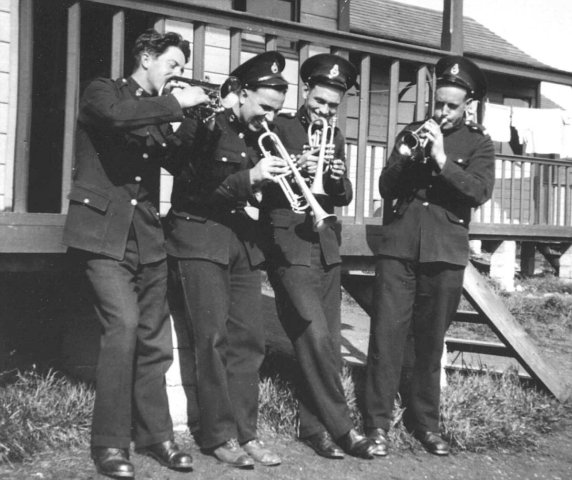
Four of the Bandies formed a jazz quartet - The Four Musketeers - and played for social occasions. The trumpeter was George's best mate, 'Lou' Barber. Of the quartet only he and Lou survived the torpedo strike.
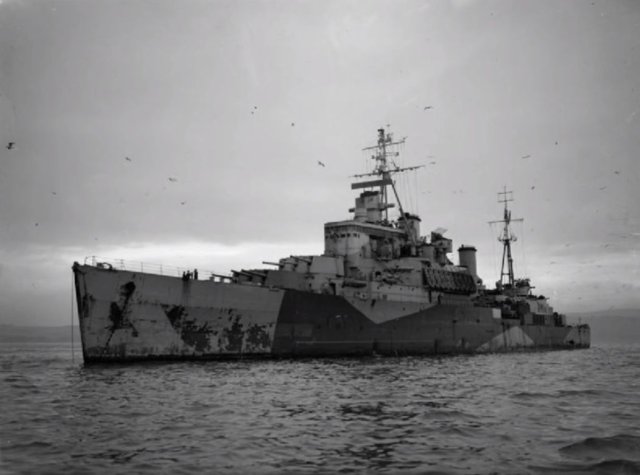
HMS Trinidad was launched 21 March 1941, and commissioned on 14 October 1941. After sea trials, she took up duty escorting convoys through the Arctic Ocean to Murmansk in Northern Russia. They were under constant threat of attack by German bombers and submarines, and dozens of merchant ships were lost. A man could only live for a minute or two in the freezing waters if the ship was sunk. George described it as a deadly combination of fear and boredom - 'a world of darkness, storms, strange colours and a faraway peacefulness.'
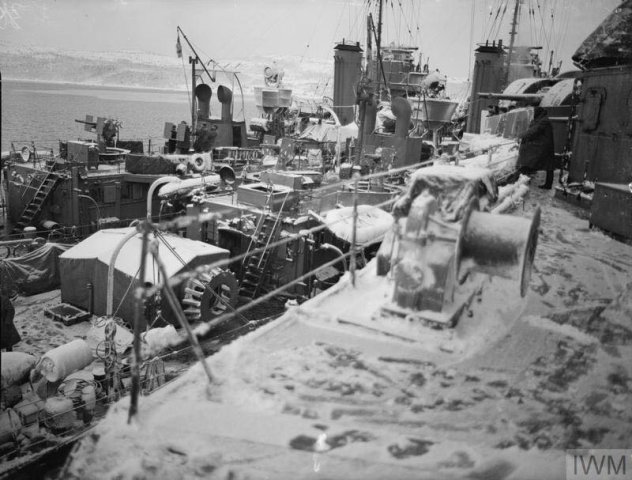
Scapa Flow became the home base for the Royal Navy warships on escort duty, where HMS Trinidad refuelled and took on food and water for the 900-man crew. At battle stations, the 12 Royal Marine Bandsmen operated the Gunnery Transmitting Station, deep inside the ship below the waterline, and at Scapa Flow they constantly practised the intricate mathematical calculations needed for setting the range and elevation of the gun turrets, using mechanical computers.
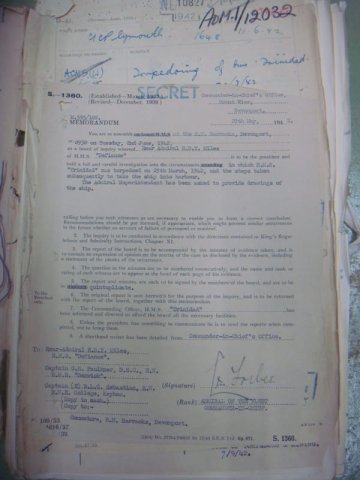
While escorting Convoy PQ 13 in March 1942, HMS Trinidad was in combat with German destroyers. She launched a torpedo attack, but possibly due to the shortage of the right lubricant oil suitable for freezing conditions. one torpedo circled and struck Trinidad on the waterline, rupturing the oil tanks. The Transmitting Station was flooded with oil, killing 17 men, of whom 9 were Bandsmen. George was the last man out, pushing his friend Lou Barber up the ladder against the deluge of oil coming down after they were ordered to shut the hatch. The report of the Official Enquiry was de-classified in 1975.
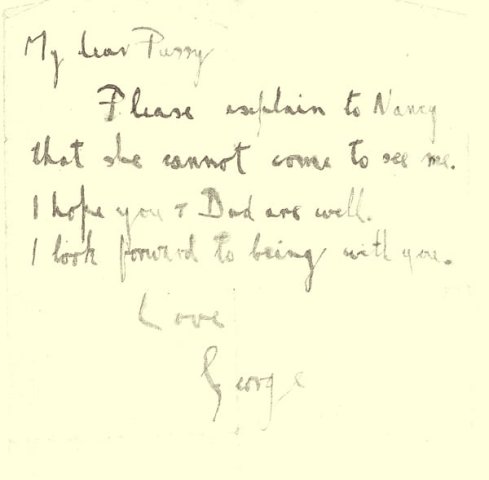
The ship did not sink, but was towed into Murmansk for repairs. George was badly injured - he had taken oil into his lungs, he had lost control of his muscles so that he could not walk or speak, and he had a pronounced shaking and trembling of his arms. He was admitted to the Royal Naval Hospital at Kingseat, near Aberdeen, where for a few weeks he was 'out of his mind' with flashbacks which re-lived what he had experienced. His own account describes the hospital conditions as 'like hell - men were shouting out and screaming all night, and some tried to kill themselves. One man was so far gone that we hoped he would succeed." George's father William, who was an Admiralty courier at that time, used his connections to locate George and visited him in hospital. George did not want Nancy to be upset by the condition he was in, so refused to meet her. She ignored that request and went to see him anyway. For the full story, click HERE.
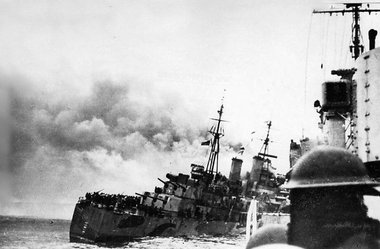
When repairs were completed, HMS Trinidad set out on the voyage home, escorted by destroyers. She was attacked by 20 German bombers, one of which scored a hit, killing 35 men and causing a serious fire. The decision was taken to scuttle the ship, and after the surviving crew were taken off, she was torpedoed by destroyer HMS Matchless. She sank, flying signal flags with the message ”I am sailing to the Westward”. Royal Marines Music Director Richard Harvey wrote this piece in commemoration, with echoes of Lloyd's Fourth Symphony. Royal Marine Band at The Royal Albert Hall
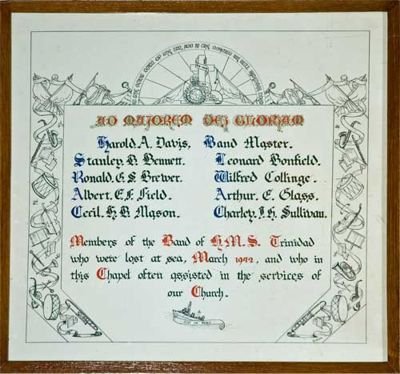
This memorial plaque to the nine Royal Marine Bandsmen who died at sea is located on the wall of St. Werburgh's Church in Wembury, close to the barracks at Heybrook Bay, Plymouth, where the band was stationed during the fitting out of HMS Trinidad.
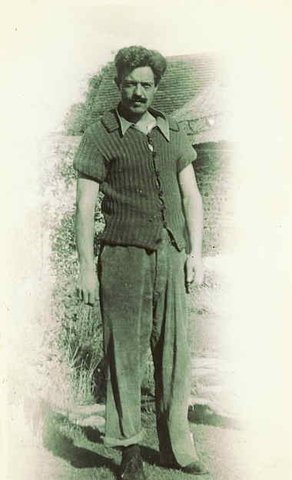
Nancy visited George at Newmacher Hospital, and at first he refused to see her. She persisted, and waited outside the gates until a nurse persuaded him to greet her. Nancy asked for an appointment with the senior doctor: "I asked him if he would discharge George and let me take him home. He said ‘It is impossible – he will never get well. ‘Well, if you can do nothing for him, you had better let me try.’ ‘No, we cannot discharge him. You do not know what you are saying.’ I said that I was sure I wanted to take him, to look after him. ‘Very well, but you must understand that you will be completely responsible for him.’ " There followed a correspondence between the Newmacher Hospital and the Admiralty as to whether George could be discharged to the care of his family, and eventually they agreed. Nancy took him home by train. "By then I had got used to George’s uncontrollable shaking movements, but not so the other passengers, who were horrified."
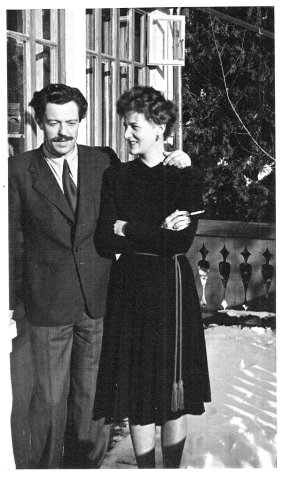
Nancy took George to stay with one of his old teachers, Miss Coombes, at West Wittering, where she took care of him until the war was over, when they travelled back to her childhood home, a pension at Château D'Oex. There she supported him by working as housekeeper, as he slowly regained his strength. In 1946 he learned to keep his hands steady so that he could hold a pen, and orchestrated the HMS Trinidad March, which was played and broadcast by Ernest Ansermet and the Orchestre de la Suisse Romande. Later that year he wrote his Fourth Symphony and in the hot summer of 1947 they stayed in Corcelette, where he composed his Fifth Symphony.